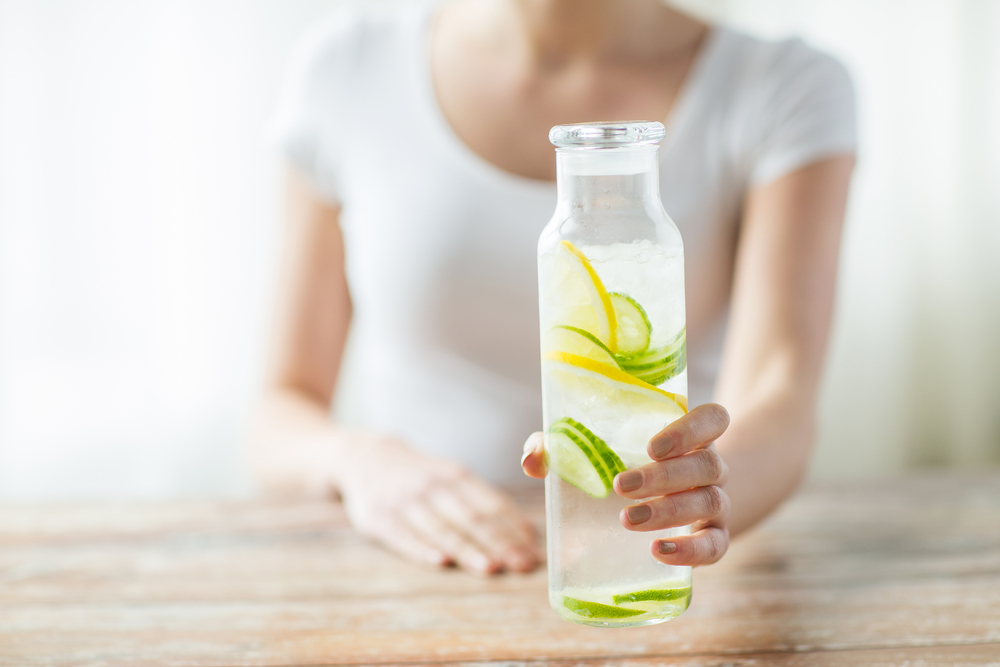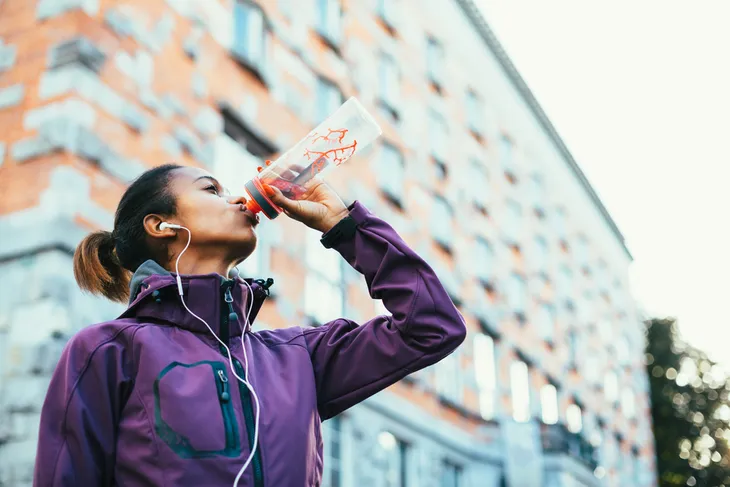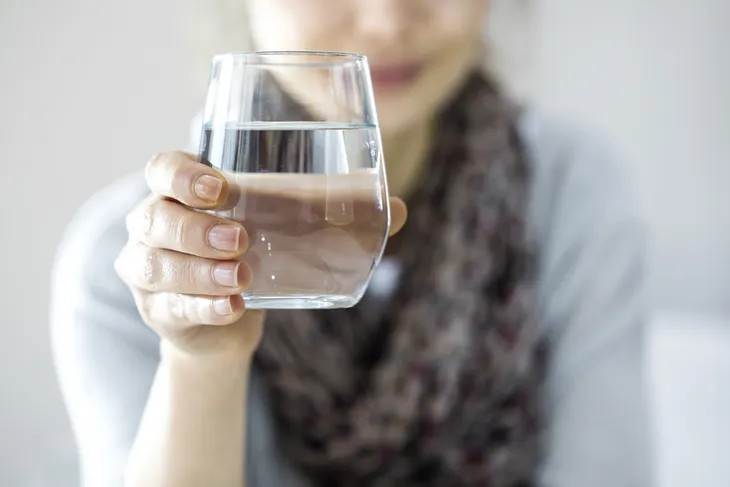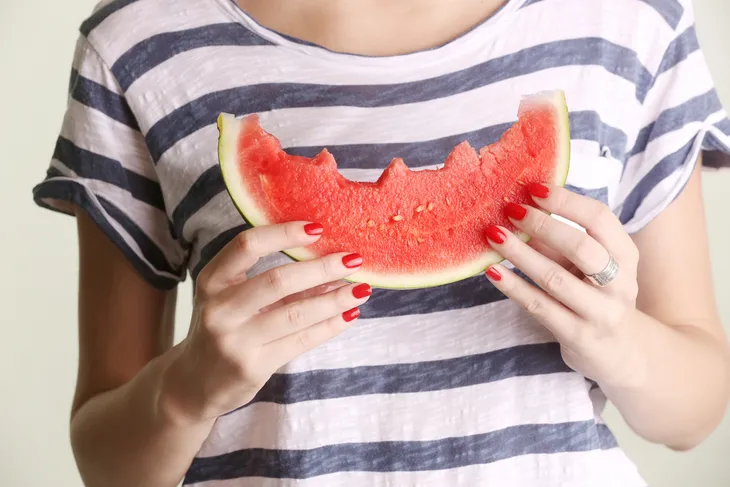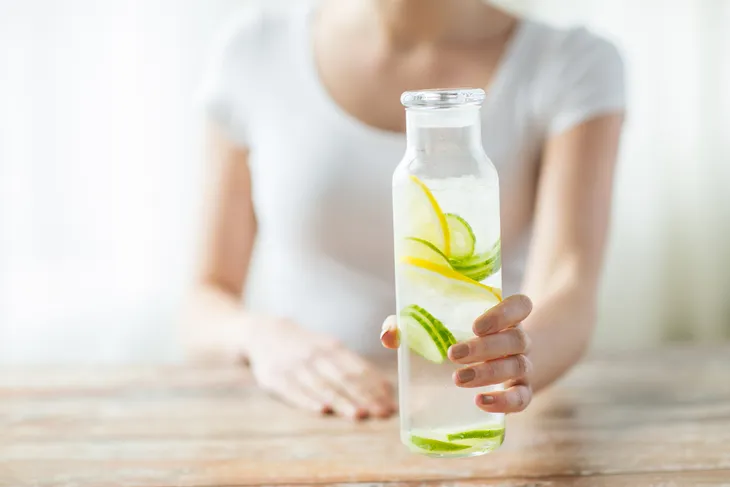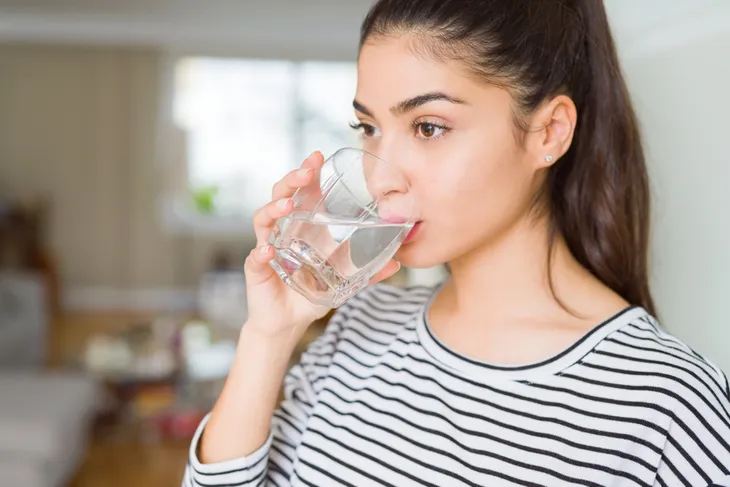According to the Centers for Disease Control (CDC), 78-percent of American adults drink less than the recommended 8-cups or 2-liters of water per day. In fact, 43-percent drink less than just half that amount. While the actual amount of water a person needs varies according to several factors—size, activity level, environment, etc.—the general consensus is that the average person should consume about 2-liters of fluid each day.
All fluids, even alcoholic and caffeinated beverages, count toward the 2-liter goal, but most health professionals agree that water is best. It’s sugar and calorie-free, and it’s the most hydrating option (caffeinated and alcoholic beverages act as diuretics, potentially leaving you more dehydrated). But how can you drink more water? Here are some tips to help boost your daily water intake…
Keep a Bottle in Front of You
North Americans are lucky enough to have drinkable tap water, but sometimes, even this is isn’t convenient enough. Carry a reusable water bottle to more easily take advantage of sinks and water fountains. They’re available in a wide array of materials and designs, so you’re sure to find one that suits your style. Alternatively, keep several bottles of water in convenient locations—desk, car, purse or knapsack, etc.
Look for a water bottle that has volume markings so you can accurately track water intake. Or, personalize your bottle with time goals—marks that indicate where the water level should be at a certain time of day. This will help you visualize your goal and track your process.
Take It Sip by Sip
There’s an old saying that you eat an elephant one bite at a time. If you find the thought of 2-liters of water daunting, try dividing it up into more manageable amounts. You may even start with a total less than the recommended 8-cups, as long as it’s more than you normally drink.
Sneak sips of water into your regular routine. For example, take a sip of water every time you stop on your commute (either at a stoplight or a transit stop). Sip throughout the day every time you take a bathroom break or perform some regular business activity (e.g., every time you make or take a phone call). Or set a timer to go off at regular intervals, such as every half hour, and take a sip then.
Eat Your Water
Who says water always has to be in liquid form? Add a little fruit juice and make homemade ice pops. All you need is an ice cube tray and some Popsicle sticks. It’s the easiest, and probably the healthiest, “baking” you’ll ever do.
There are also several fruits and vegetables that have a large water component. Watermelon, cantaloupe, grapefruit, cucumber, spinach, and salad greens all have high water contents. Watermelon and spinach in particular can be up to 90-percent water by weight!
Give It Some Flavor
If it’s the blandness of water that’s holding you back, give it some taste with fruits, vegetables, or herbs. Think beyond the lemon slice—cucumber, watermelon, lavender, mint, orange slices, and berries are just a few of the delicious additives you can try.
Soda lovers might try a mix of fruit juice and sparkling water. It’s flavorful and fizzy like soda, but with less sugar, more nutrients, and no caffeine. (For more information, check out The Incredible Health Benefits of Drinking Lemon Water).
Reach for Water Before You Eat
People often mistake thirst for hunger, so before you reach for that treat, even if it’s a healthy one, take a drink of water. If you’re still hungry after a couple good gulps, then you can eat.
Research from Virginia Tech also indicates that drinking water before meals helps in weight loss. Participants who drank water before eating consumed fewer calories than those who didn’t.
